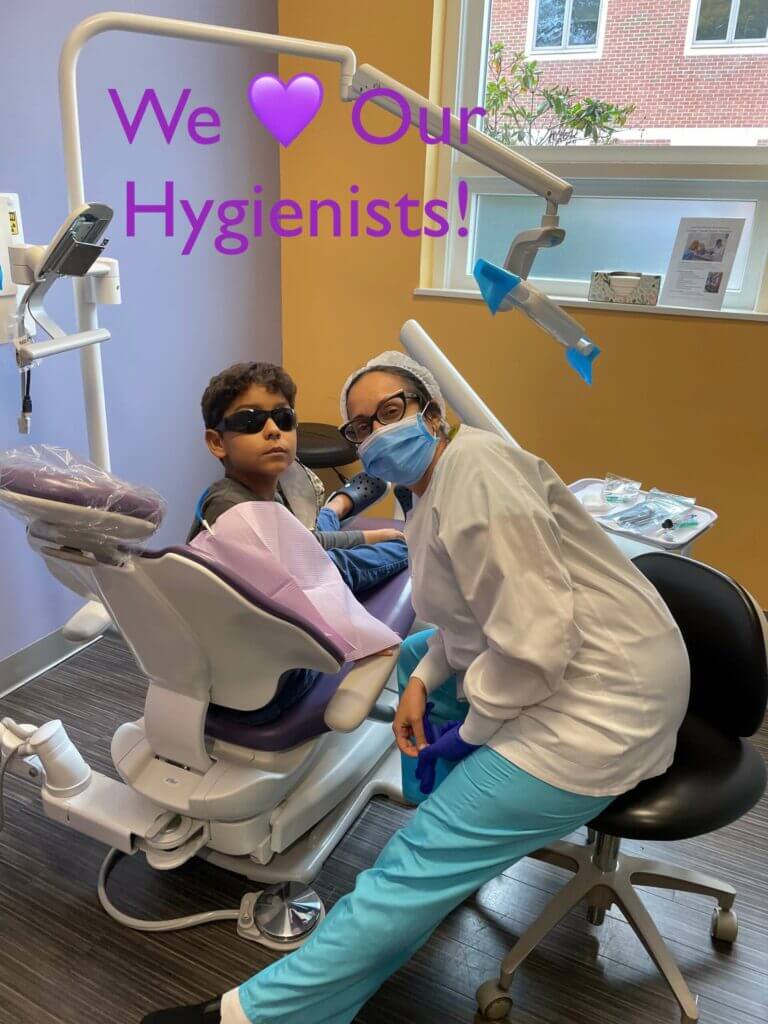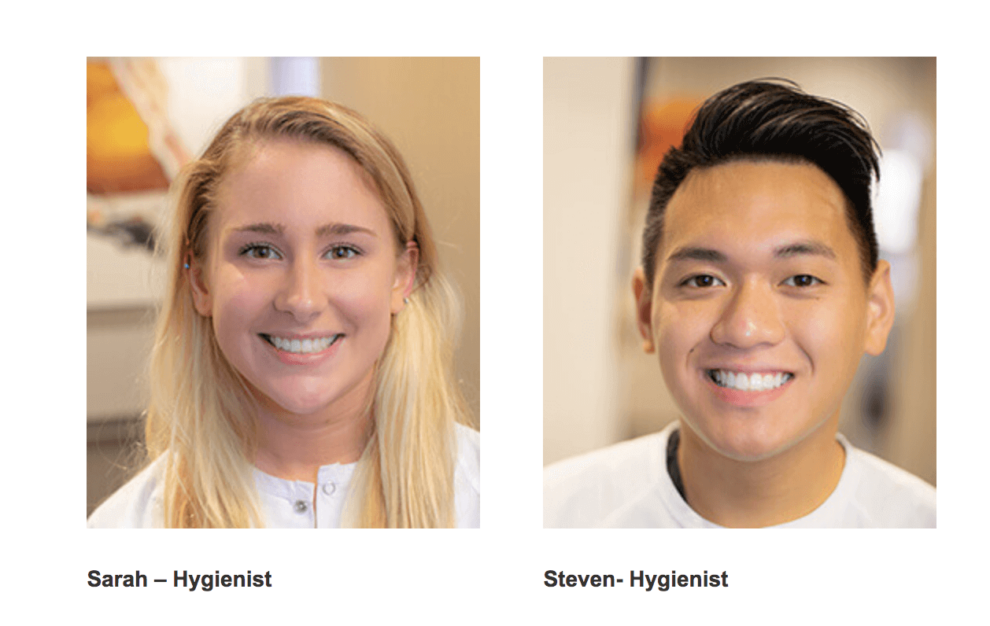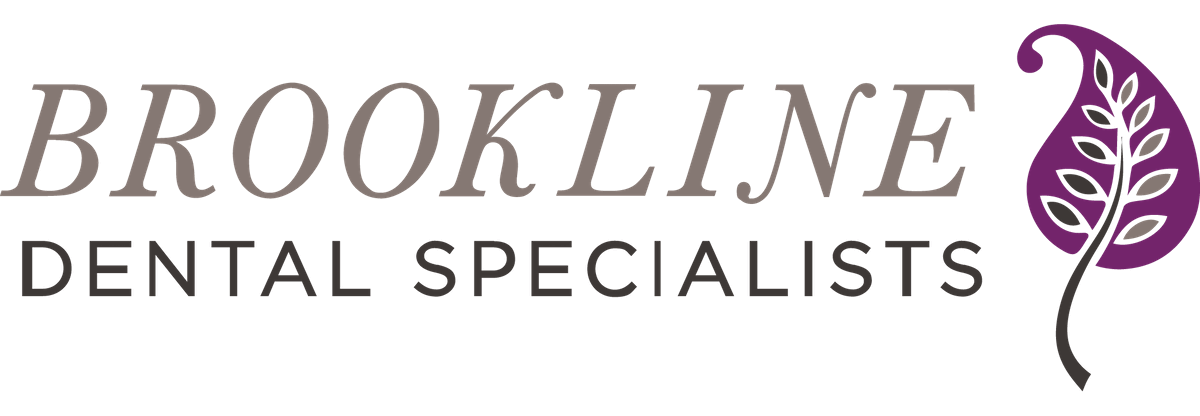
October is National Dental Hygiene Month. Calling attention to this important aspect of dental care allows us to think more closely about what quality dental hygiene entails and reminds us that good dental hygiene is the first line of defense against serious dental issues and disease. Taking preventative care seriously helps ensure a lifetime of healthy smiles!
Good dental hygiene starts at home. Committing to a regular routine of care at home ensures your teeth stay clean, strong, and white. Your home routine should include twice-daily brushing using a fluoride toothpaste and soft-bristled brush, ideally for at least two minutes per brushing session. While a high-quality manual toothbrush does a fine job, electric toothbrushes can be more effective in getting rid of the plaque and bacteria that can lurk in hard-to-reach areas of the mouth. Flossing at least once a day is equally as important. Gently flossing between every tooth up and around the gum line ensures that your mouth is left clean and fresh.
Regular visits to the dentist go hand-in-hand with your home dental care routine to keep your teeth and mouth at their healthiest. Seen twice-yearly (or more often for patients with periodontal disease), our dental hygienists will give you a comprehensive review of your oral health, a thorough cleaning, a periodontal exam as well as instruction and advice on your home care plan. Often, x-rays are taken to get a better picture of the overall health of your teeth. These regular exams significantly reduce your risk of developing common, but serious dental conditions, like cavities, gum disease, enamel wear, and tooth loss.

Good dental hygiene is not just about brushing, flossing, and seeing the dentist regularly. Good dental hygiene can be compromised by over-consumption of sugary or acidic foods, which can lead to decay and enamel erosion. Limiting your intake of these foods and/or brushing after eating them can help mitigate their harmful effects on your teeth. Smoking is not only bad for your lungs but also harmful to your teeth and gums. The use of tobacco increases your risk of certain types of gum disease and even tooth loss. If you smoke or chew tobacco, you should strongly consider quitting, not only for your body but for your teeth.

